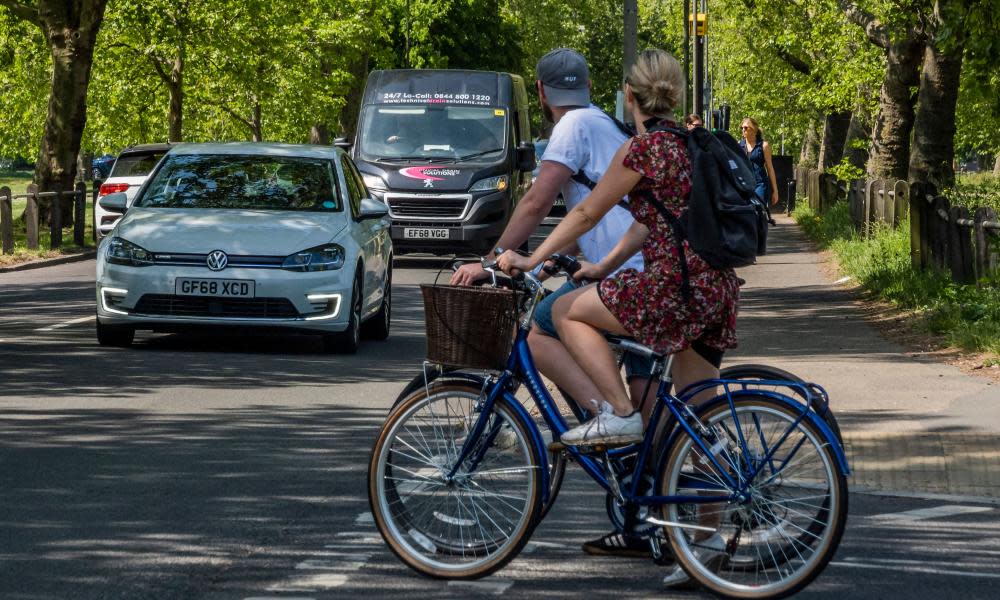Sound advice on staying safe when cycling

Claire Armistead’s article (Beware jeans, avoid the gutter, keep your saddle dry … 10 tips to make cycling a delight, 31 May) was very helpful. As someone who cycled for many years, mainly to and from work in London, I have picked up a few further tips.
First, never wear earphones when cycling. You must listen as well as look at what’s happening around you, and plugging up your ears shuts out important sounds. Portable radios can be attached to your handlebars, the sound of which melds in with everything else, and I did not find mine distracting.
Second, never cross from one side of a road to the other, however minor the road is; always dismount and push your bike.
Third, never sit on the inside of a lorry at traffic lights, even though lorries now must have mirrors for seeing you. Always hold back and sit beside a car, which will have plenty of windows.
Lastly, when cycling along a main road, where a vehicle is waiting in a side road on your left to pull out into the traffic, take control of your speed, slow down and make eye contact with the driver. If they have seen you they will make eye contact with you naturally. If there is no eye contact, be ready to pull up in case they pull out across you.
Margaret Davis
Loanhead, Midlothian
• I was disappointed that Claire Armistead’s article made no mention of using a bell. It seems ridiculous that it is compulsory for a bell to be fitted when you buy a bike, but it may then be removed when cycling on the road or cycle paths.
As a daily cyclist on streets with narrow pavements and shared cycle paths, I strongly feel that all bicycles should by law carry a bell. I use mine constantly when coming up behind people who look as if they may walk into the road to overtake somebody on the pavement, or groups on cycle paths. I often smile and apologise to avoid any bad feeling.
Hopefully cycling will now become a more acceptable way of getting to work or school, but we must make it safe and practical.
Jane Harding
Winchester
• Claire Armistead’s advice is on the money. Just one thing: bike lights, yes, but a reflector jacket or belt makes you even safer after dark. They’re called “high visibility” for a reason.
Willy McCourt
London

